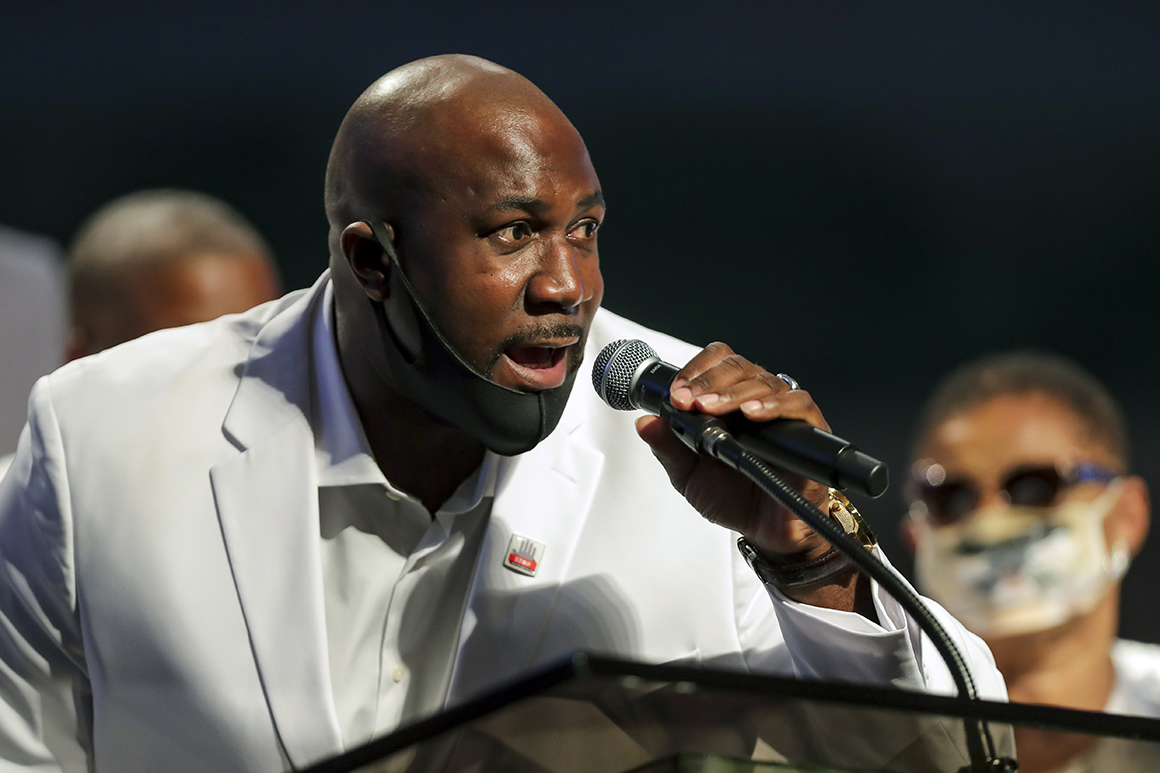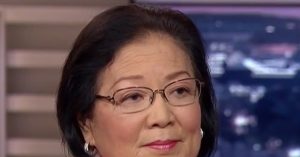The brother of George Floyd, an unarmed African American man killed last month by a Minneapolis police officer, will plead with lawmakers Wednesday to implement sweeping restrictions on the use of force by police.
Philonise Floyd, according to his prepared statement, described the anguish his family felt after videos surfaced of the officer, Derek Chauvin, kneeling on his brother’s neck for nearly nine minutes, crying for air until he drew his last breath. That anguish quickly consumed a nation already paralyzed by coronavirus lockdowns and economic turmoil.
“I can’t tell you the kind of pain you feel when you watch something like that. When you watch your big brother, who you’ve looked up to your whole life, die. Die begging for your mom,” Floyd plans to tell the committee. “I’m tired. I’m tired of the pain I’m feeling now and I’m tired of the pain I feel every time another black person is killed for no reason. I’m here today to ask you to make it stop. Stop the pain. Stop us from being tired.”
George Floyd’s killing ignited two weeks of protests in dozens of major American cities — and across the world — and sparked a dramatic shift in public opinion in support of overhauling policing policies that disproportionately affect African Americans.
Though most protests have been peaceful, some were accompanied by violence — at times provoked by bands of rioters and vandals, at others instigated by police officers who targeted protesters or journalists with tear gas, pepper spray and rubber bullets. Some of those incidents have gone viral, sparking new waves of unrest or recrimination.
The conflict culminated on June 1, when U.S. Park Police, flanked by other federal agencies, dispersed a largely peaceful demonstration across from the White House with violent force and aid from military police — just moments before President Donald Trump strode through the cleared park for a photo op in front of St. John’s Church.
The conflict has become a flashpoint in the presidential campaign as well, with former Vice President Joe Biden calling for significant police reforms and meeting with the Floyd family, while Trump has at times appeared to escalate the crisis and trained his focus on looters and rioters, framing the issue is a matter of “law and order.”
On Tuesday, Trump amplified a conspiracy theory that a 75-year-old protester who was knocked to the ground and injured by police was really an “antifa” provocateur seeking to interfere with police operations. Last week, during meandering remarks on a better-than-expected jobs report, Trump called it a “great day” for George Floyd.
Yet by late Tuesday White House chief of staff Mark Meadows said the president wanted police reform “sooner rather than later.”
Philonise Floyd’s words opened what is expected to be an emotional and contentious hearing about police brutality, centered on legislation that House Democrats drafted in consultation with advocates for racial justice and police reform.
Witnesses called by Democrats argue that police reform would require a wholesale reimagining of the relationship between officers and communities, one that would prioritize social services rather than armed confrontation. Some have argued that Trump had exacerbated a national climate in which police felt free to abuse suspects, citing his 2017 comments in which he suggested it was okay to rough up arrestees.
The proposed legislation would implement sweeping changes to the way police officers are held accountable in cases of misconduct.
It would lower the legal threshold for federal charges in cases of death at the hands of the police, encompassing episodes in which officers acted “knowingly or with reckless disregard.” The bill would sharply curtail “qualified immunity,” which has created a high hurdle for families or victims of police misconduct to recover damages. It would also expand the authority of the Justice Department and state attorneys general to investigate systemic police misconduct.
The measure would also ban chokeholds, like the kind that killed George Floyd and New York’s Eric Garner in 2014, and it would prohibit no-knock warrants in federal drug cases and condition aid to local law enforcement agencies on whether they follow suit.
The measure would restrict when federal law enforcement officers are permitted to use force, require deadly force to be a last resort after other measure to deescalate are applied It would require federal officers to wear body cameras, and require state and local agencies to use existing federal funds to implement police body cameras.
The legislation would create a federal registry of police misconduct records and require the Justice Department to collect data on the racial makeup of those facing drug charges, the use of deadly force and traffic stops. The measure would also establish training programs for law enforcement agencies to confront racial or religious discrimination and profiling.
Many of the advocates who helped Democrats compile the legislation were on the witness panel for Wednesday’s hearing, including Sherrilyn Ifill, president of the NAACP Legal Defense and Educational Fund, Ron Davis, a senior official with the National Organization of Black Law Enforcement Executives, Vanita Gupta, head of the Leadership Conference on Civil & Human Rights; Marc Morial, president of the National Urban League; and Phillip Goff, president of the Center for Policing Equity. Democrats also called Art Acevedo, the chief of the Houston Police Department and Paul Butler, a Georgetown University law professor.
No House Republicans have signed on to the Democratic proposal, but their counterparts in the Senate have begun discussing possibilities for passing their own police reform legislation that could serve as a starting point for negotiations with House Democrats, raising the prospect of a rare election-year push for major bipartisan legislation.
The House GOP, for its part, called three witnesses to the hearing: longtime Trump ally and conservative commentator Dan Bongino, a former Secret Service agent and congressional candidate; Pastor Darrell Scott of Illinois’ New Spirit Revival Center, another longtime Trump surrogate; and Angela Underwood Jacobs, the sister of an Oakland-area security guard shot and killed during last week’s unrest.



















